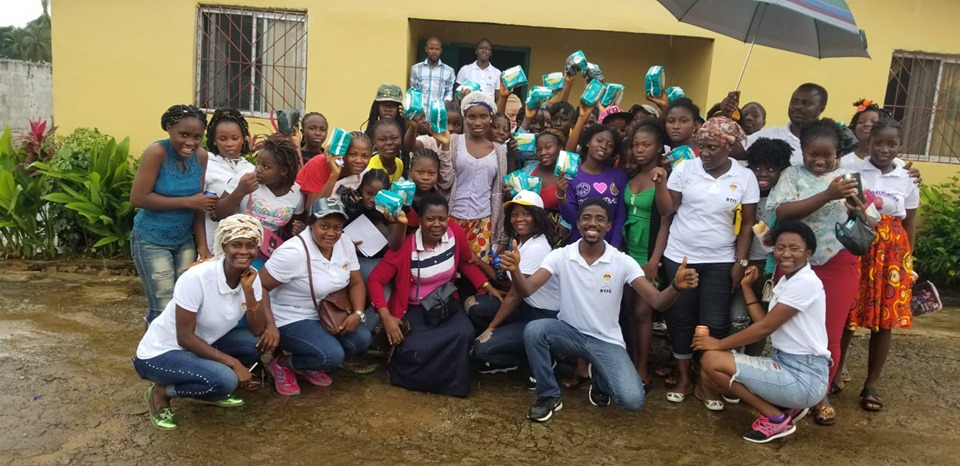Filed in by Olando Testimony Zeongar – 0776819983/0880-361116/life2short4some@yahoo.com
Monrovia – The international charity Bowier Trust Foundation Switzerland (BTFS), with support from Rotary District-2,000, Switzerland, has offered health education to some 38 adolescent girls in Liberia.
Bowier Trust Foundation Switzerland’s Women Department and WASH Club offered the training recently at a day-long workshop under the theme: “My Body, My Health, My Period,” with an organizational mandate of giving the participants, who were drawn from communities within the vicinity of BTFS Liberia head office, basic information that will help girls make good decisions to lead healthy lives.
Bowier Trust Foundation Switzerland chief for operation, Laryee A. Sannor says many young girls in Liberia are at risk of dropping out of school due to a lot of factors among which are teenage pregnancy and the effect of having little or no education on how to deal with their menstrual circle.
Most adolescent girls do not have an understanding of their menstrual period and how to properly manage same, said Sannor, noting that in the wake of the prevalence of teenage pregnancy and girls dropping out of school early in various communities in the country, the day-long workshop was necessary to train the participants on ways that such societal challenges can be averted.
The target audience of the workshop was young girls between the ages of 12 and 18, with the lead facilitator, Madam Oretha Slogan, utilizing a modified version of menstrual hygiene and puberty for adolescent females.
The training was interactive and was broken up into two phases, with Phase-1 being the educative section where the participants were taught the basics of the female body from infancy to puberty.
Madam Slogan demonstrated the female body and how each part functions during females’ early stages of puberty.
Phase-2 of the BTFS one-day workshop dealt mainly with females’ usage of sanitary pad, with the lead facilitator along with scores of women from BTFS Women Department distributing pads among the participants and Madam Slogan thereafter, teaching how sanitary pads are to be used.
A participant who is also a 17-year-old mother of one, Louise Kemokai, giving her assessment of the day-long exercise, asserted that it was very useful for her, adding that she learned a lot.
Louise noted that had she been armed with all of the knowledge she acquired during the workshop, she would have prevented being pregnant in her teen.
“If I would have had this program before my pregnancy, I wouldn’t have gotten pregnant at this age,” Louise said.
Another participant, 18-year-old Mercy Forkpa, living along with two siblings with her parents, disclosed that she had to drop out of school once, due to limited knowledge on how to properly manage her menstrual period.
But according to Mercy, what she has learned because of the BTFS organized workshop, she wouldn’t have to miss not even a day out of school anymore because of her menstrual period.
For her part, 16-year-old Amelia N. Togba, who is living with a single parent (mother), said one important lesson she was taught at the workshop was how to effectively change her sanitary pad two to three times daily during her menstrual period, indicating that doing this properly will not only save a female from public embarrassment but also from health problems.
Fourteen-year-old Blessing Saye, another participant, who lives along with two siblings in their parents’ home, for her part, noted that the workshop was not just an ordinary program, terming the day-long event as a new beginning.
Blessing narrated challenges she faced as a child and how during the workshop was the first time she ever heard and got to know about anything called sanitary pad.
With teary eyes, Blessing disclosed that what she used during her menstrual period in the past, were old pieces of cloth.
Currently in the country, little Blessing, who never sat in a class room in her life time and is presently not in school, is among several other girls who lack access to safe and good personal hygiene.


